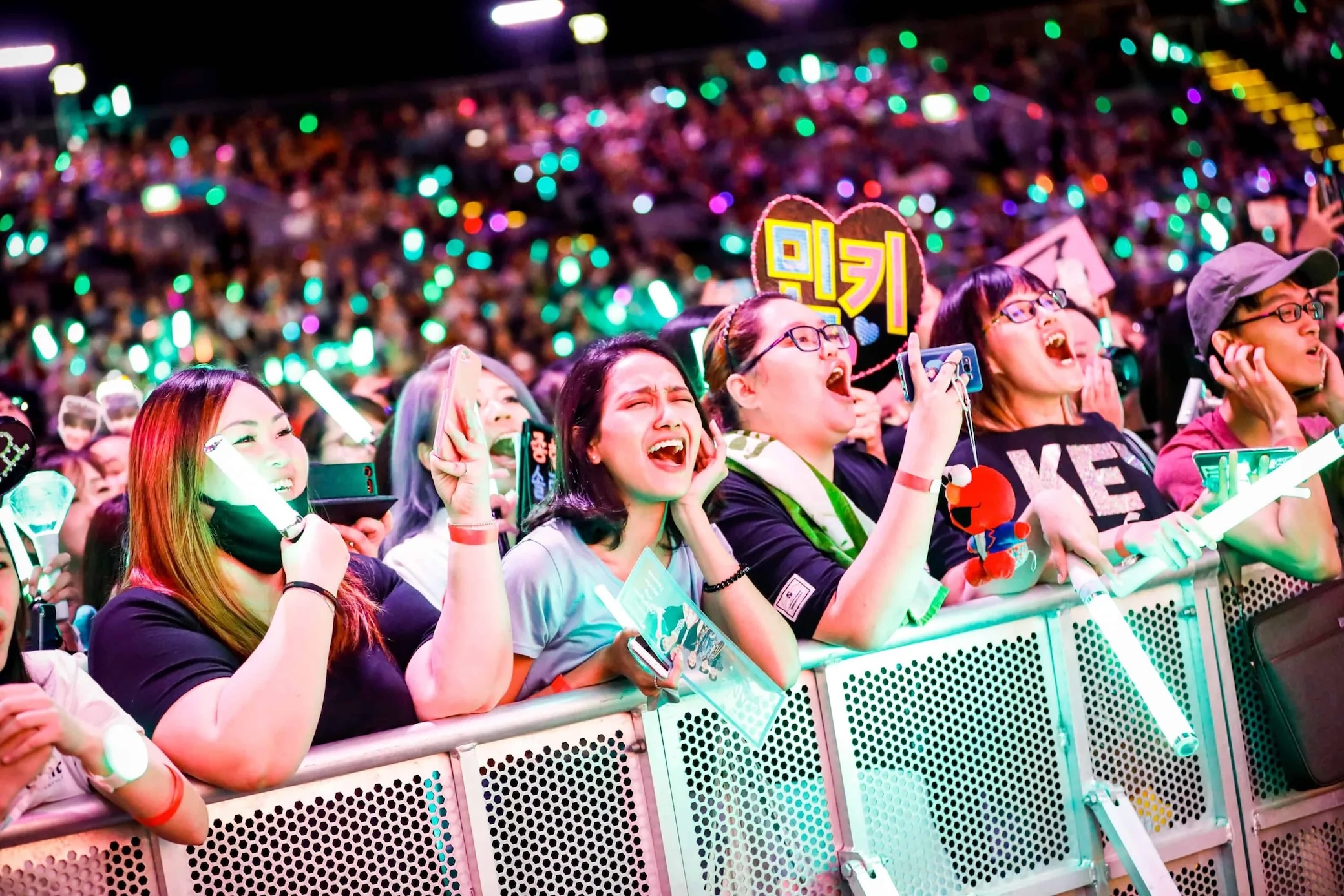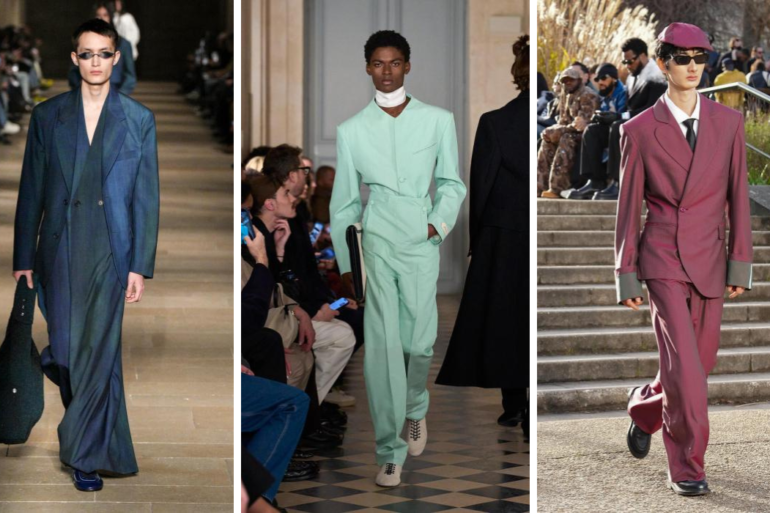Taylor Swift, BTS, and even BINI bring out the beauty of being a fan. At times, however, too much fangirling/fanboying can take on a nasty turn.
The concept of fandoms has been around for as long as I can remember, though sources differ as to exactly when it started. Some academics say modern fan culture originated with the Star Trek fandom in the 1960s, while some date back the advent of fandoms to as early as the 1900s, with the rise of science fiction and comic book communities.
In fact, if we were to consider gatherings of like-minded individuals, then the concept of fandom goes all the way back to ancient times. For example, ancient Greek and Roman societies had fan-like groups devoted to particular gods, heroes, or theatrical performances.
It was certainly strong during our parents and grandparents’ time when Noranians versus Vilmanians and Crispa versus Toyota ruled local fandom rivalries; and in my early years as an older millennial when it was Britney versus Christina, Backstreet Boys versus Boyzone versus Westlife, and the TGIS barkada versus the Gimik squad.
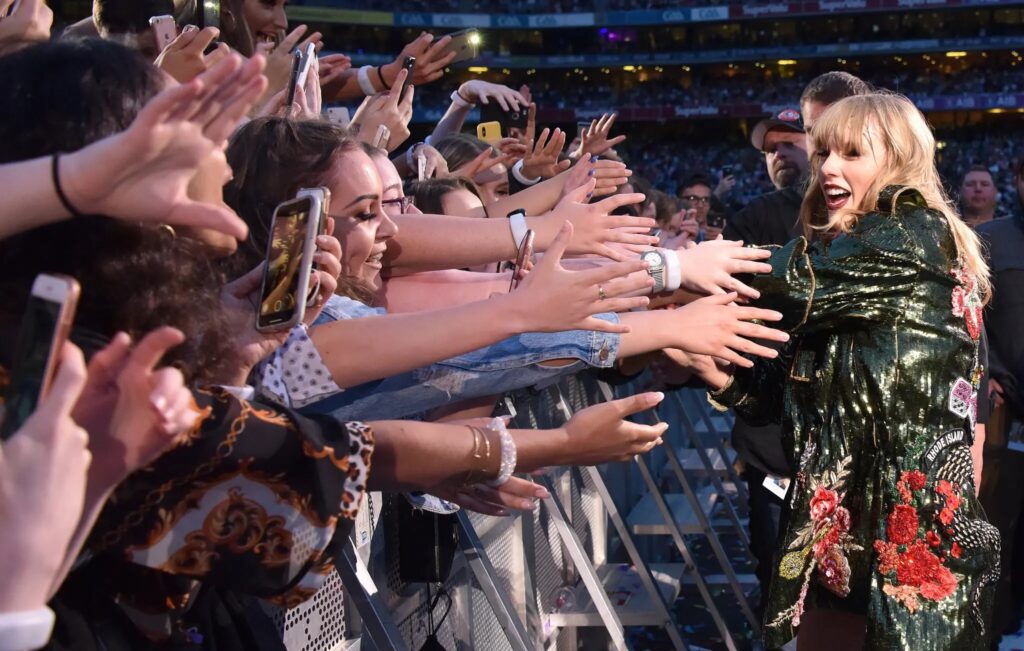


Fandom culture may have a long history, but if you’re a fan of anyone or anything at this very moment, I’m sure you realize that now is the best time to be a fan. Thanks largely to the internet, fan culture has become bigger, more widespread, and more accessible than ever.
Nowadays, you can interact with fellow fans from every corner of the world. Fan-related activities such as conventions, meet-and-greet events with idols, and the like have also become increasingly popular and frequent. Plus, fan merchandise has leveled up—though sadly not only in variety but also in prices, just like concert and fan event tickets. You can trust capitalism to ruin everything it lays a finger on.
The beauty of being a fan—and having a fandom
Aside from the fun from being a fan, belonging to a fandom and fangirling/fanboying has many other benefits both for the fans and the ones on the receiving end of the adoration. The connection forged by a fan with an idolized person is called a “parasocial relationship,” typically defined as a one-sided social and emotional bond developed with fictional characters or celebrities.
In an article in Time magazine, parasocial relationships are said to help adolescents, in particular, to form an identity and develop autonomy, citing a 2017 study. Additional research has found that parasocial relationships can help people with low self-esteem feel more confident and strive to become closer to their ideal self.
In the same article, Lynn Zubernis, a clinical psychologist who admits to being a fan of the TV show Supernatural, explained that feeling attached to a celebrity or character can also create a sense of comfort, or what she described as a “secure base or haven” that can help people get through the most difficult life challenges.
She added that parasocial relationships can “expand social networks and offer a sense of companionship in plenty of other ways.” This became especially true during the COVID-19 pandemic, when many people—isolated at home and unable to spend time with friends and family—gravitated toward online communities, including fandoms.
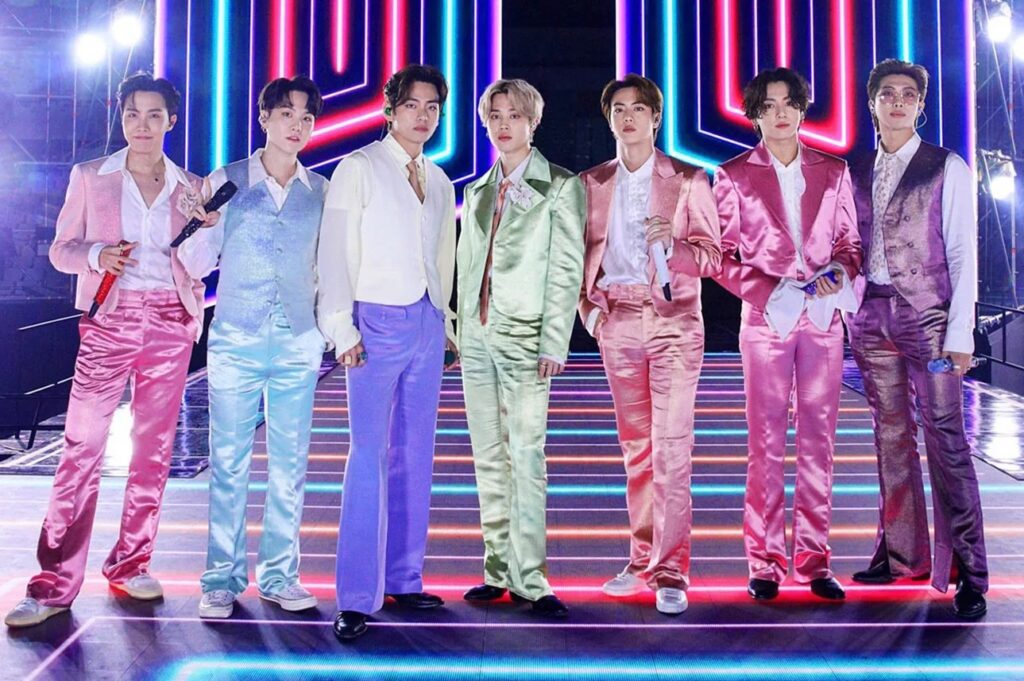


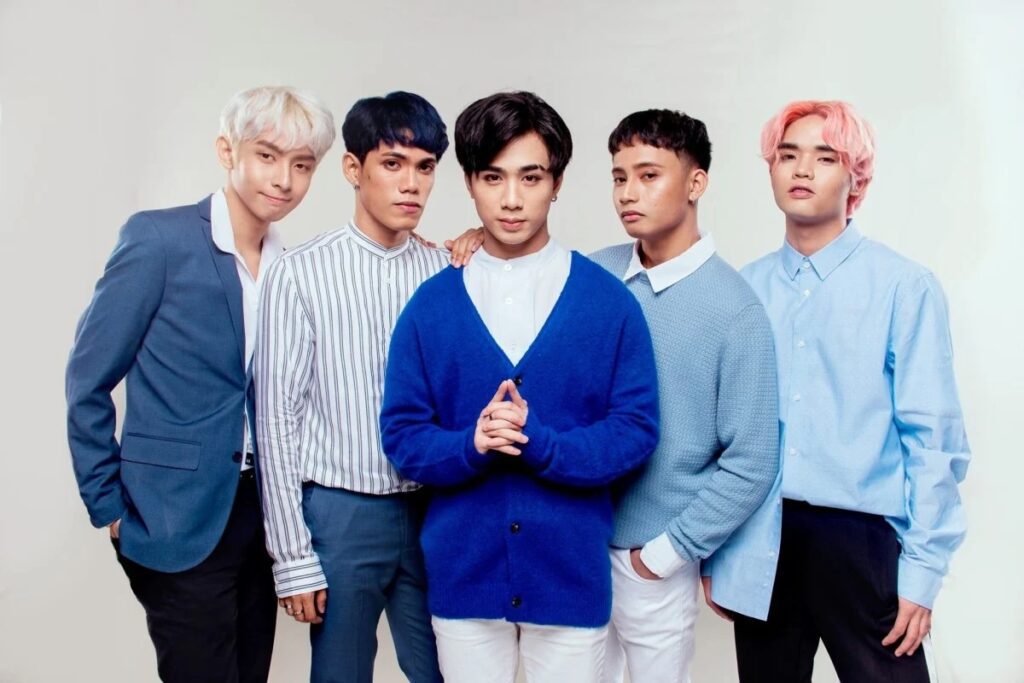


Many fandoms are also known for their advocacies. Members are usually quick to come together when it comes to achieving a collective goal, which often benefit a lot of people. OneInAnARMY, for instance, an online group that spearheaded the #MatchAMillion campaign following BTS’ $1 million donation, has a network of fans from different countries with various roles ranging from research and social media to graphic design. It also has many volunteers doing translation work.
On the other end of the pole, it goes without saying that celebrities (and nowadays, influencers as well) reap a lot of benefits from having fans. “Having interactions or parasocial relationships with their fans or supporters is important as this benefits them with engagement,” says Asst. Prof. Samuel I. Cabbuag of UP Diliman’s Department of Sociology, in an interview with The POST. “Meaning fans will continue to watch their content, movies, and thus make them earn more through merch or the products they endorse as affiliates.”
This is why many celebrities similarly appreciate—and even encourage—fans’ parasocial bonds. It doesn’t take rocket science to know why: Loyal, invested fans fuel careers—and bank accounts. Parasocial relationships are not just about emotional connections; they also make good business.
This is why then Singapore Prime Minister Lee Hsien Loong made a deal for the city-state to be the exclusive Southeast Asia stop for Taylor Swift’s “Eras Tour.” The strong attachment that fans feel can compel them to spend an insane amount of money to fly to another country to watch a concert or to line up for hours to buy official merchandise.
And, now, the ugly side
Sure, being a fan in the past decade or so is a whole lot of fun, but it’s not all light sticks and colorful friendship bracelets. This greater and more intimate accessibility to public figures fueled by social media has its downsides: both for the fans and the idols.
Many fans have become intrusive, taking the idea of parasocial relationships to a different—and at times dangerous—level. With social media giving fans even more intimate access to the personal lives of famous people, some fans develop unhealthy attachments to their idols.
Some fans, for instance, have taken on a toxic turn, harassing anyone they perceive to have offended their favorite star. Celebrities are often reluctant to discuss parasocial relationships for fear of alienating their fans, but occasionally, the situation gets bad enough for them to issue statements. Taylor Swift recently instructed fans not to cyberbully her ex John Mayer. Similarly, Selena Gomez and Hailey Bieber have both pleaded with fans to stop sending death threats and making mean comments intended to defend each star from the other.
KPop groups have long struggled against the so-called sasaeng or obsessive fans who act in ways that invade the privacy of Korean idols, drama actors, or other public figures in the entertainment industry. This group of fans are most notorious for stalking and even selling their idols’ personal information online, presumably for a large sum.
Locally, fanwars are almost a regular occurrence on X (formerly Twitter) between fans of idol groups, both K- and P-pop. Fans of the P-pop groups SB19 and BINI, called A’TIN and Blooms respectively, had a major online scuffle recently over views expressed by a female broadcaster which pitted one group over the other.
Also recently, BINI members appealed to fans to respect their privacy after some people knocked on their hotel room in the wee hours of the morning to ask for a picture. Over the weekend, some Blooms turned against one of their own who gifted a BINI member with a puppy, calling the fan “inconsiderate” and some other even more dehumanizing names for gifting their idol with a live gift which entails a huge responsibility.
In June, the agency of actor Byeon Woo-seok of the hit series Lovely Runner warned overzealous fans that it would take strong measures against privacy invasion, as reported on The Korea Times. This comes after reports of fans who follow the artist’s vehicle after schedules, visit his residence without permission, take unauthorized photographs, and illegally obtain personal information.
I could go on and on and on about freaky fan behavior, but we’re not here to delve on that.






So what explains unhealthy fan behavior? When does fangirling/fanboying cross the line? In the same Time magazine article, Gayle Stever, a researcher on fandoms, noted that often, people engaging in this behavior are “too young to know better, have a mental illness, or are caught up in stan culture,” which she considers a separate (and extreme) entity from the usual parasocial behavior.
To make better sense of the different kinds of fans, in 2002, psychologist Lynn McCutcheon co-developed the Celebrity Attitude Scale, which identifies three levels of celebrity worship: 1. Entertainment-social, where most fans enjoy a celebrity’s work; 2. Intense-personal, where some fans internalize the celebrity’s values and see them as a soulmate; and 3. Borderline-pathological, where someone is willing to engage in extreme or illegal behavior for their favorite celebrity.
To which of these categories do you belong? I certainly hope it’s not in the last one.
Striking a balance
“I believe it has to do with one not considering the other party’s safety, comfort, and security like if a fan is already invading the (idol’s) private/personal space, including social media accounts,” explains Asst. Prof. Cabbuag on why some fans go to extreme lengths to please or “protect” their idols. “We can say that fangirling is becoming an unhealthy fixation if there is no more balance between doing fan work and their personal lives, affecting their studies, work, or other vocations.”
Indeed, it is important to recognize when the parasocial relationship is starting to lead to maladaptive actions like obsessive thoughts, dissociation from reality, and compulsive or violent behaviors. If it is consuming too much of your time, energy, and resources, then perhaps it’s good to take a step back and evaluate what your emotional attachment to a public personality is costing you and the ones around you.
Experts also suggest reflecting on the true nature of these relationships. It may not sound good to fans, but they should be reminded every so often that these parasocial connections are often promoted with commercial interests in mind and lack the mutual give-and-take of real-life and genuine friendships.
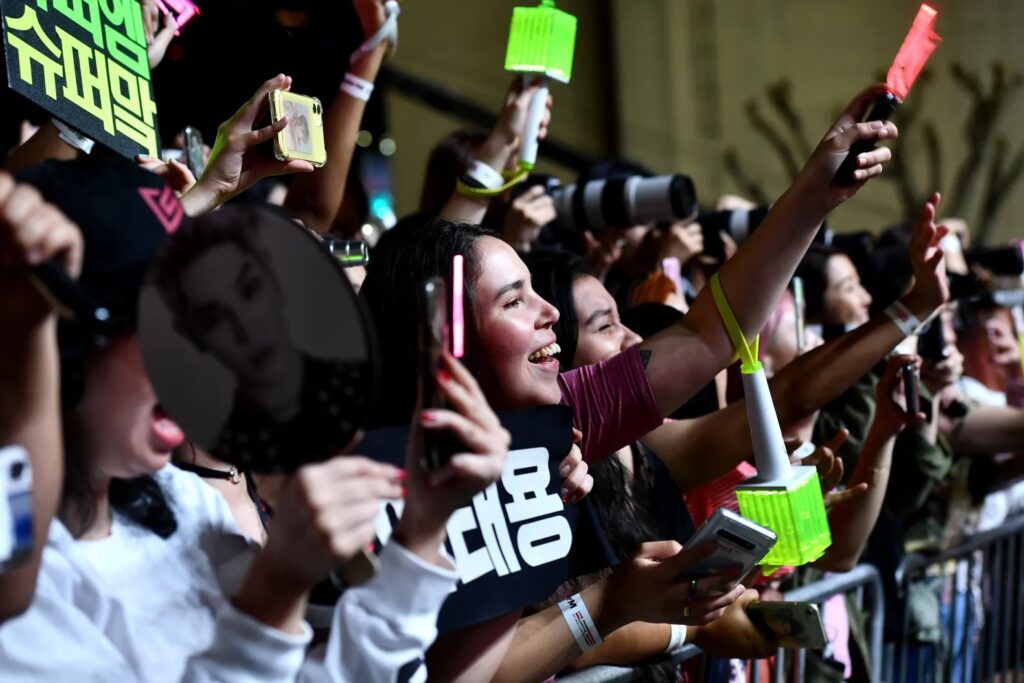


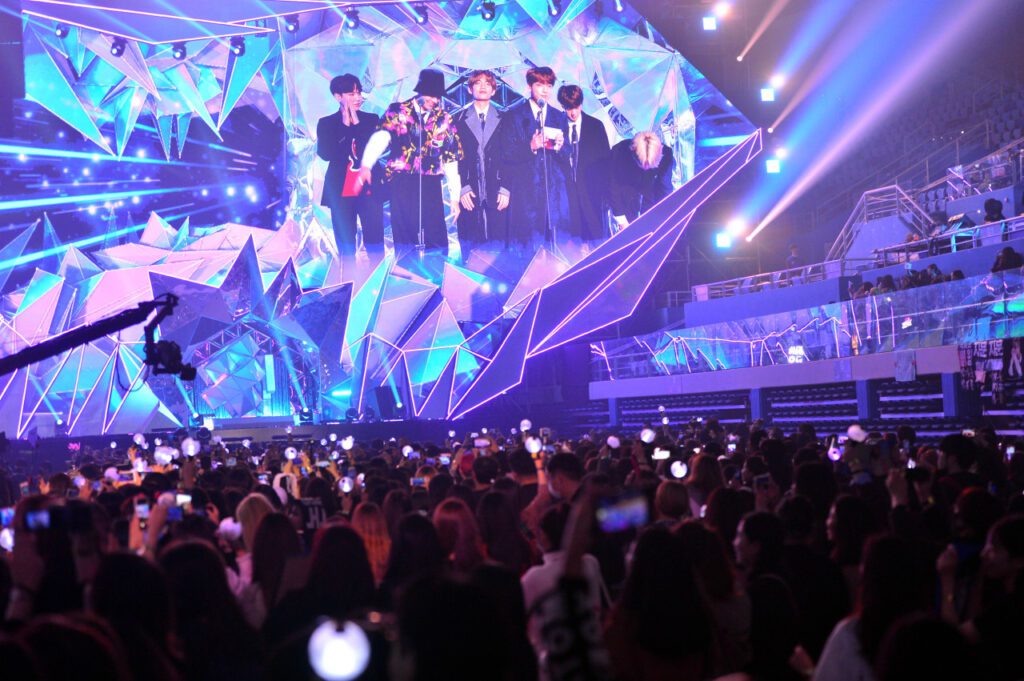


“The solution has to start with the fans themselves as they need to remember that these public figures have their personal lives as well, deserve to have some privacy, and deserve to have their personal space,” adds Asst. Prof. Cabbuag, who is currently taking up his doctorate at the Hong Kong Baptist University.
Sure, being a fan can make one feel good, and can be a much needed source of comfort and inspiration, but it cannot—and should not—replace the richness of real friendships built through physical interactions and shared experiences over time. Striking a balance by creating some emotional distance between yourself and the person you admire while allowing real-life connections to flourish is the way to healthy fangirling/fanboying.

